-
Australia’s Black Summer a climate wake-up call
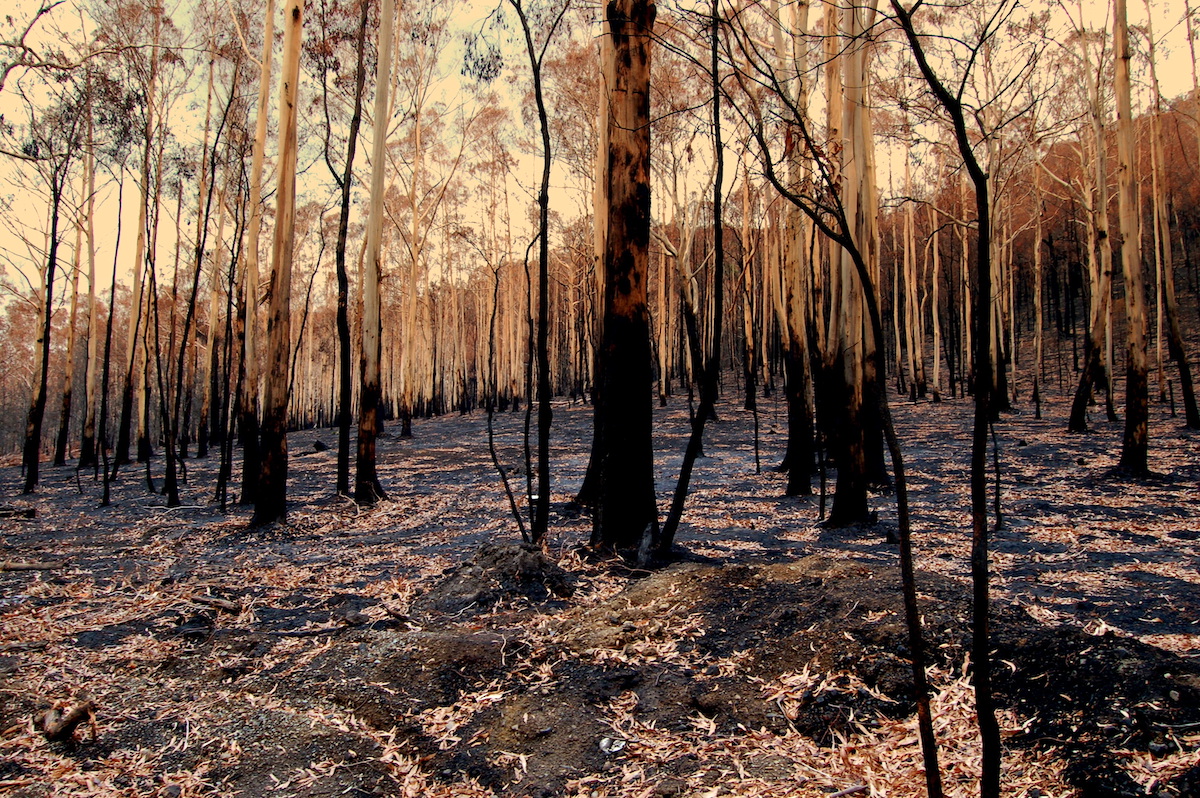
The 2019/20 Black Summer bushfires are a “wake up call” demonstrating the extreme effects of climate change in Australia, according to a group of experts who’ve published a new study examining the factors that caused the disaster.
-
Q&ARC: Meet some of our researchers

Multiple ARC Centres of Excellence came together to produce short videos about their researchers under the title Q&ARC. This is the CLEX version featuring Rishav Goyal, Stacey Hitchcock, Andy Hogg, and Nina Ridder.
-
The known unknowns of climate change
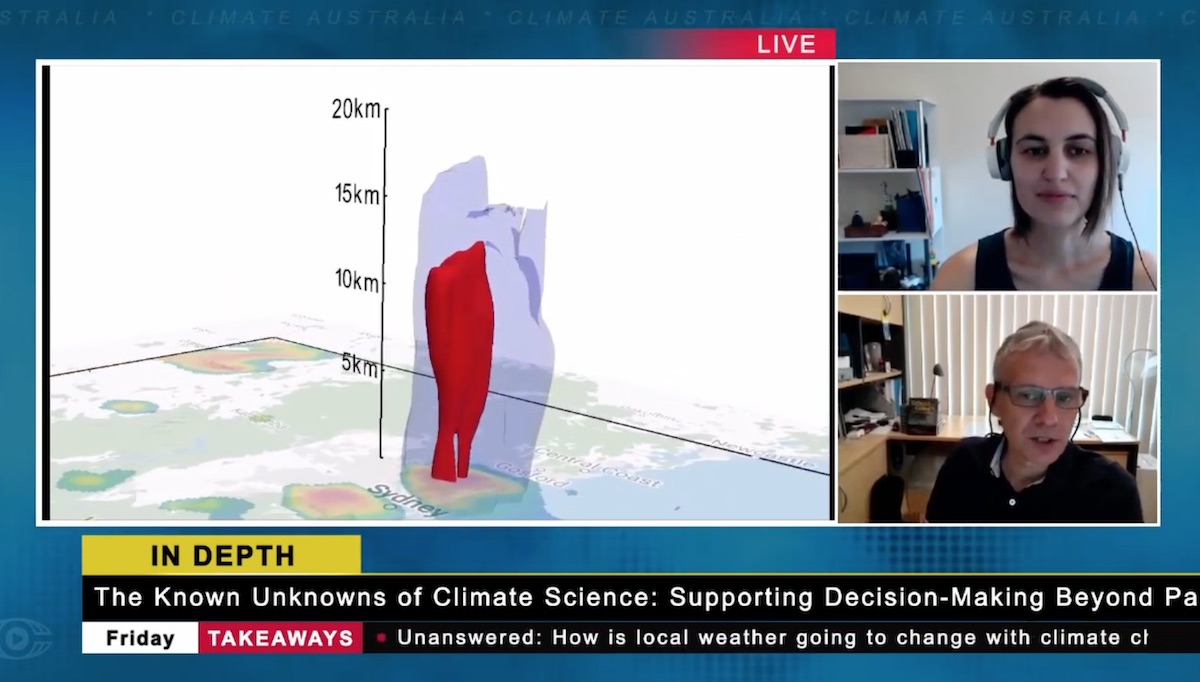
Lee Constable interviews Prof Christian Jakob about what we don’t know about climate change for her channel on the Cimpatico Studios platform, Climate Australia.
-
How sensitive is the Earth’s temperature to the amount of carbon dioxide in the atmosphere?

A landmark new international review of climate sensitivity led by ARC Centre of Excellence for Climate Extremes researcher Prof Steven Sherwood has reduced the uncertainty in Equilibrium Climate Sensitivity. Estimates of likely values now vary by less than a factor of two. The new assessment concludes that the climate is more sensitive to atmospheric carbon…
-
New book reveals how climate change affects ENSO
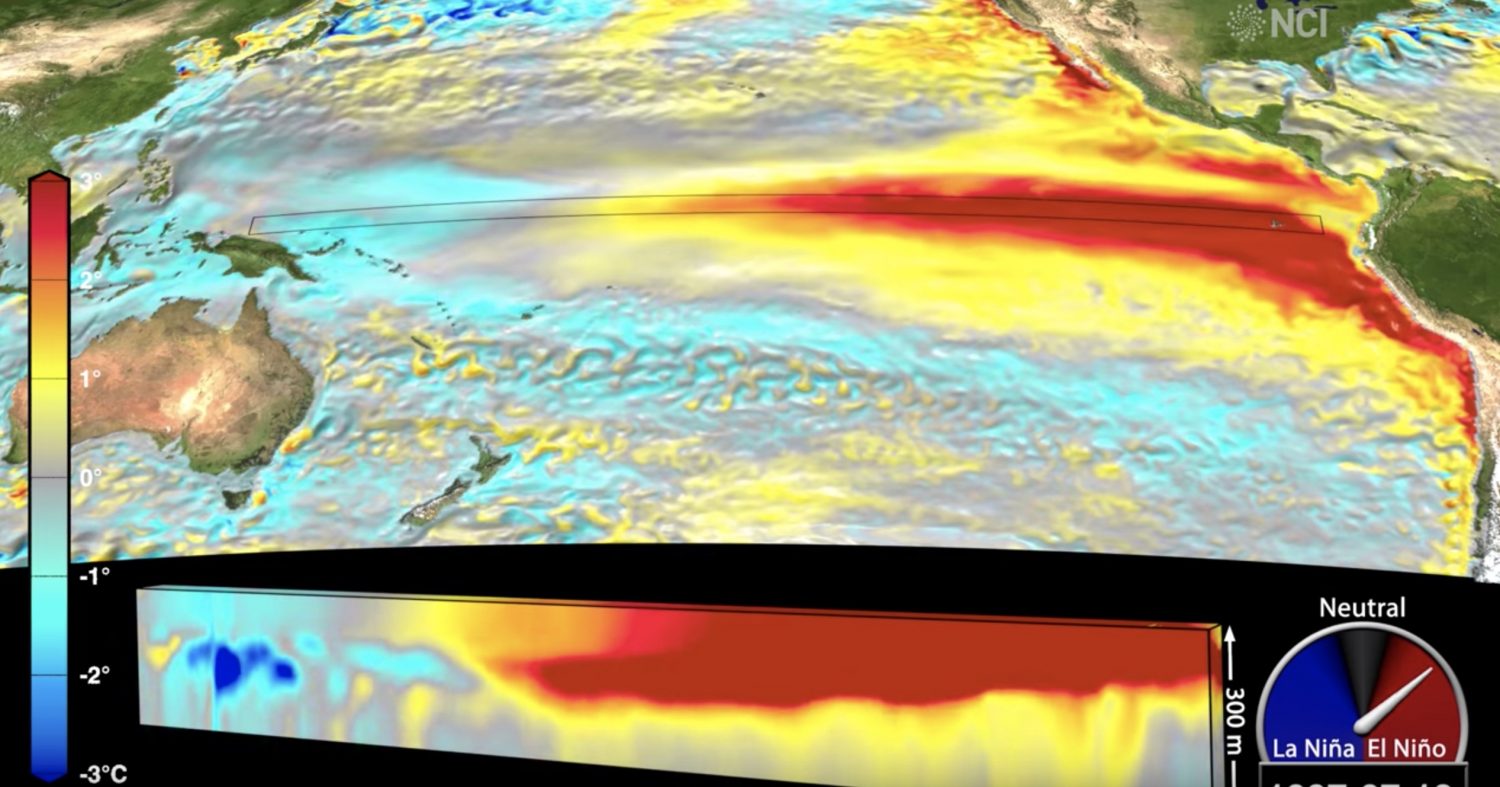
As a La Niña event intensifies in the Pacific, bringing increased rain to parts of Australia and a powerful hurricane season to the Tropical Atlantic, a new book reveals the dynamics and impacts of the El Niño Southern Oscillation (ENSO), the irregular cycle that switches the Pacific Ocean between these cool La Niña and warm…
-
Researchers call on Australian citizen scientists to collect storm data
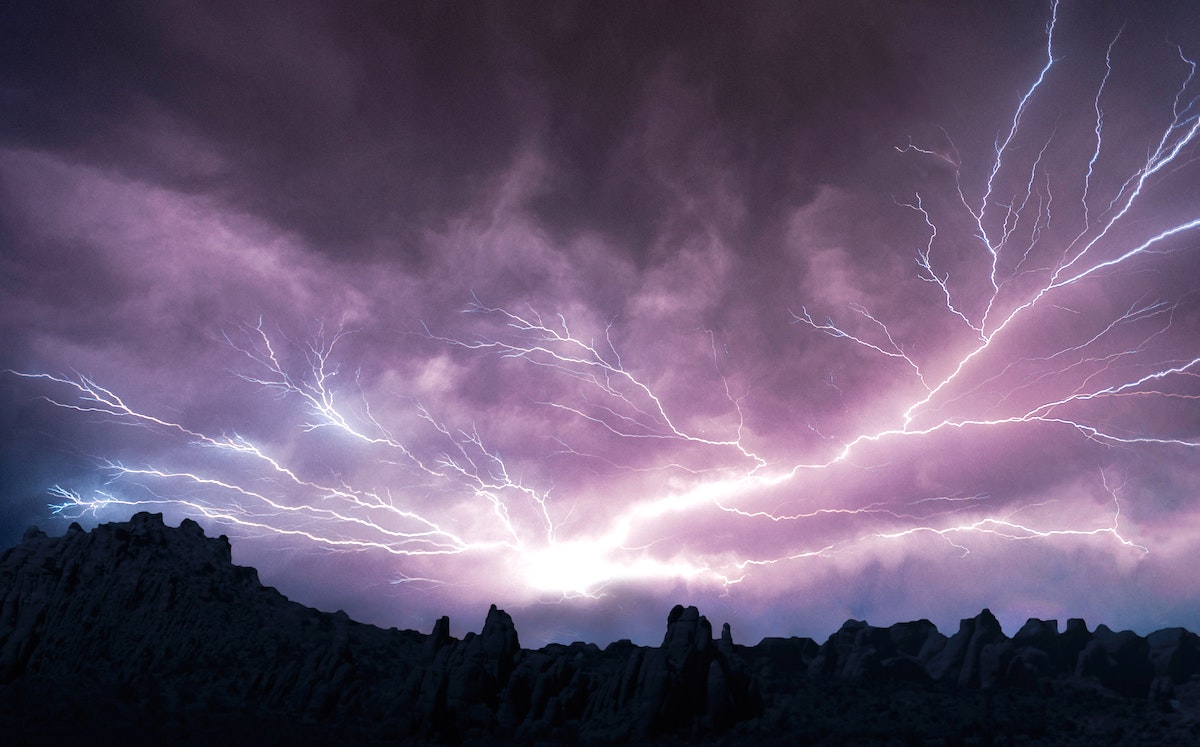
Australia researchers are calling on storm chasers and members of the general public fascinated by severe weather to take part in a citizen science project that will help better capture the occurrence of extreme weather events and improve our ability to forecast them.
-
Analysis reveals where marine heatwaves will intensify fastest

High resolution ocean modelling has found the world’s strongest ocean currents, which play key roles in fisheries and ocean ecosystems, will experience more intense marine heatwaves than the global average over coming decades.
-
How climate change impacts prescribed burning days
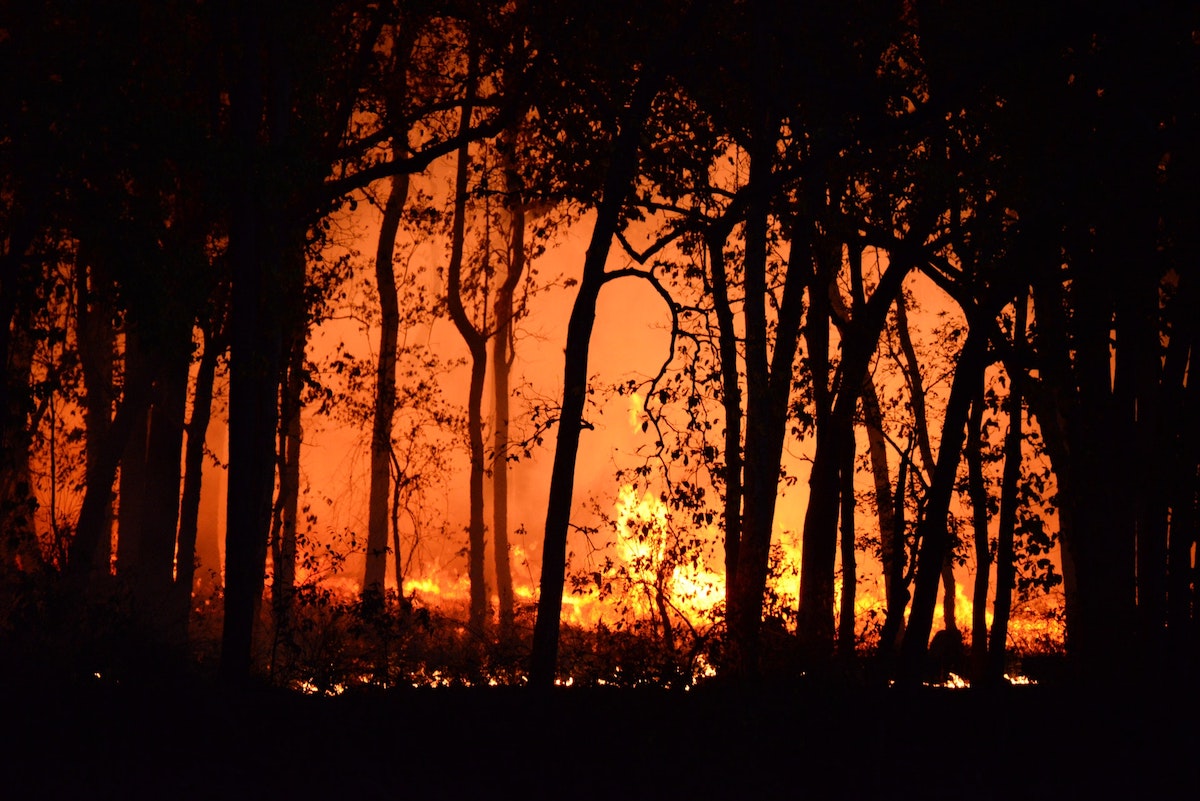
Climate change will affect prescribed burning days in the future. Unexpectedly, it is not all bad news, but as the coming century progresses there are definitely changes ahead for our firefighters in Australia when it comes to preparing for a fire season, especially along the east coast of Australia.
-
Need for prediction of marine heatwaves

CLEX researchers and colleagues have highlighted the need for the development of systems to predict marine heatwaves, which are a growing threat to marine ecosystems and industries as the climate changes.
-
Marine heatwaves affecting the ocean’s tiniest organisms

Tiny microbes at the base of the ocean food chain will be increasingly affected by marine heatwaves as the climate changes.
